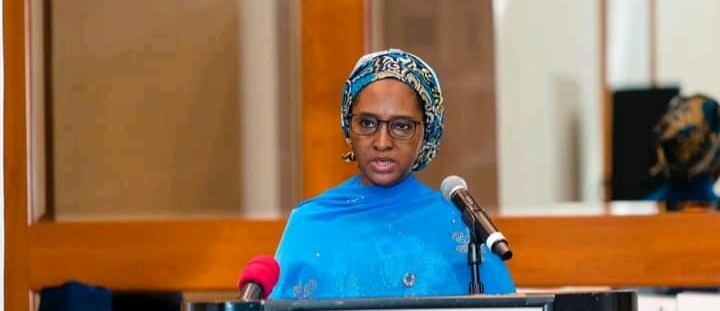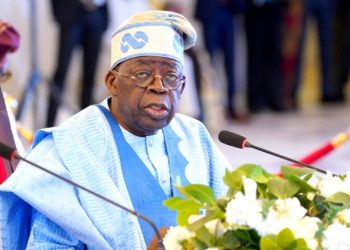Nigerian Minister of Finance, Budget and National Planning, Hajia Zainab Ahmed has revealed that the revised National Integrated Infrastructure Master Plan for 2022 to 2043 is costed at 2.3 trillion US dollars, which mean $2.3tn is needed to modernize Nigeria’s infrastructure for over the next 21 years.
The Minister who disclosed this in Abuja on Thursday, at the Nigeria Institute of Architects NIA- IINFRADCO Conference, said President Muhammadu Buhari and his Vice, Professor Yemi Osinbajo have continued to prioritize the strategic use of limited resources in initiating vital new projects and bringing to completion legacy infrastructure projects.
Ahmed stated further that these legacy infrastructure projects are chronically underfunded in key sectors such as power, rail, roads, housing and agriculture, would be impossible to build without a master plan.
Which she said prompted the revised of the Nigeria integrated infrastructure master plan, developed implemented economic recovery and growth plan with its current successor of Nigerian development plan for 2021 to 2025.
Adding that through an extensive consultation process with all key stakeholders, including specifically the private sector the Government also created several innovative approaches to financing and developing infrastructure projects by raising funds and resources and deploying them in key areas of of concern.
Citing an example, the Minister made mention the Road Infrastructure Development and Refurbishment Investment Tax Credit Scheme. “This scheme was launched in 2019.
“To leverage private sector capital via tax credits, and provide private sector expertise to construct, repair and maintain critical road infrastructure in key economic growth corridors and industrial clusters in Nigeria.
“With this project, the road projects have been approved and are at various stages of construction to the use of so coupons to finance the rehabilitation and reconstruction of road projects across Six geopolitical zones of our country, including their city.
“So far, we have issued four circles of sokoke totaling 604 point 5 billion naira, and then there’s a fifth circle that is under preparation that will be worth about 250 billion naira. This we have issued so far and deployed this funds for specific road projects across the country.
“Also is the deployment of the Nigeria infrastructure fund through the Nigerian sovereign Investment Authority. The NSI to fund projects in key sectors such as health, education, agriculture, financial services, housing, and some of the flagship projects that the NSA has led on include the Presidential fertilizer initiative.
“As well as a number of key projects, including Lagos Ibadan expressway, the second Niger bridge, as well as Abuja, Kaduna Kano route, which have been over the years severely underfunded until this administration came on created the PID of an assigned the NSI to implement the projects.
“The presidential power initiative, also designed to modernize and increase the electricity grid from a capacity of five gigawatts to 25 gigawatts over three phases. Through a partnership between the Nigerian government and the Nigerian and other German governments.
“Progress has made towards the realization of two gigawatts under phase one of the PPI with the first batch of critical transformers already in Nigeria. And 10 Mobile stations arriving in the fourth quarter of 2022 to early 2023”, the Minister said.
$2.3trn costed at Nigeria’s Infrastructure for next 21yrs – Ahmed
Please login to join discussion











